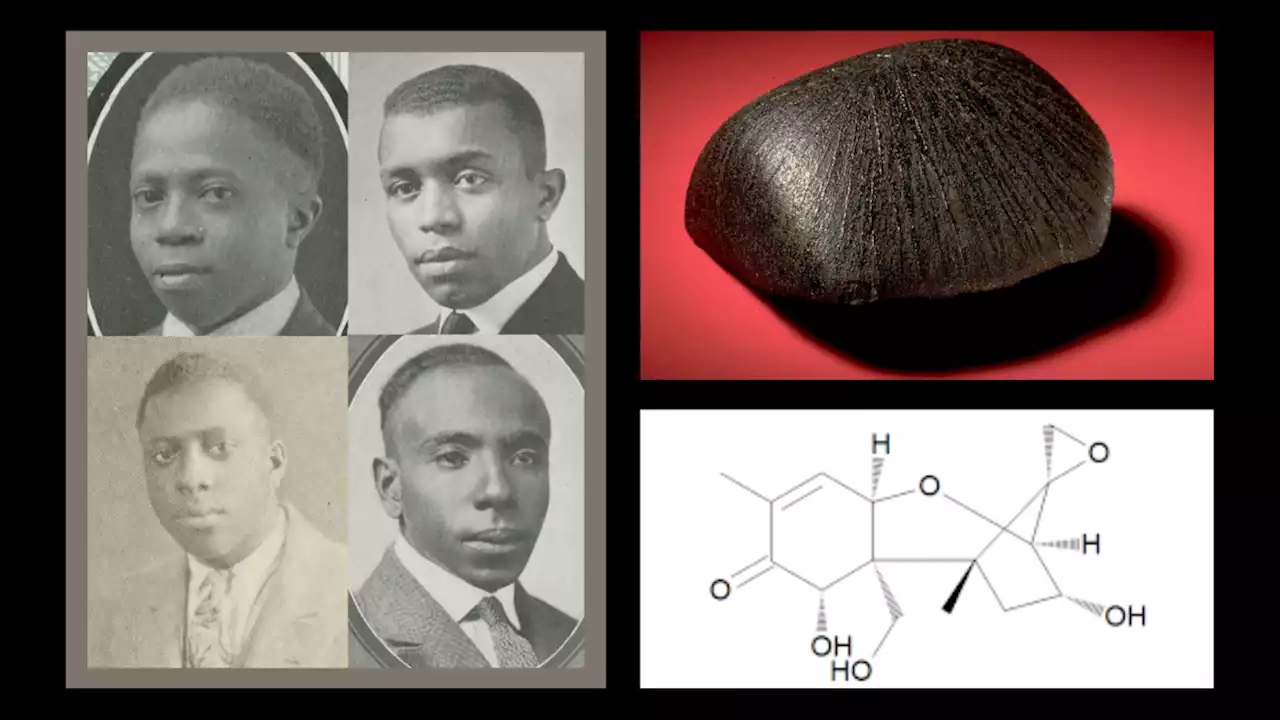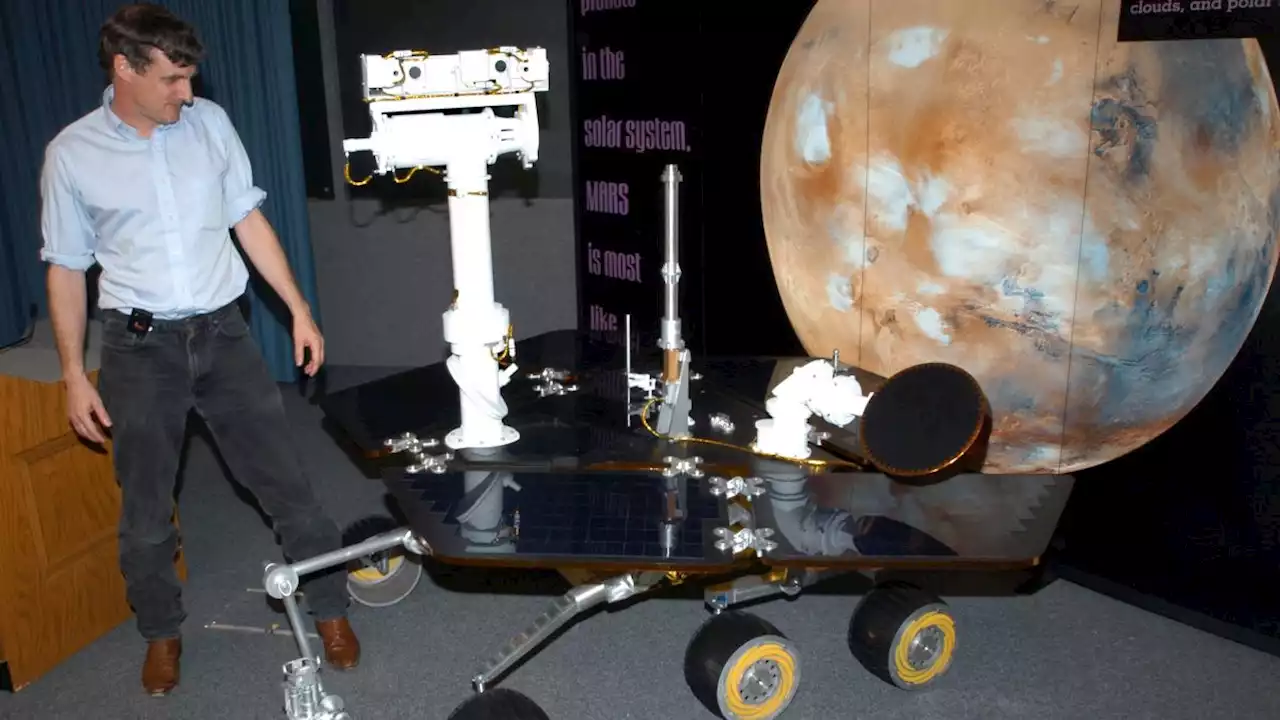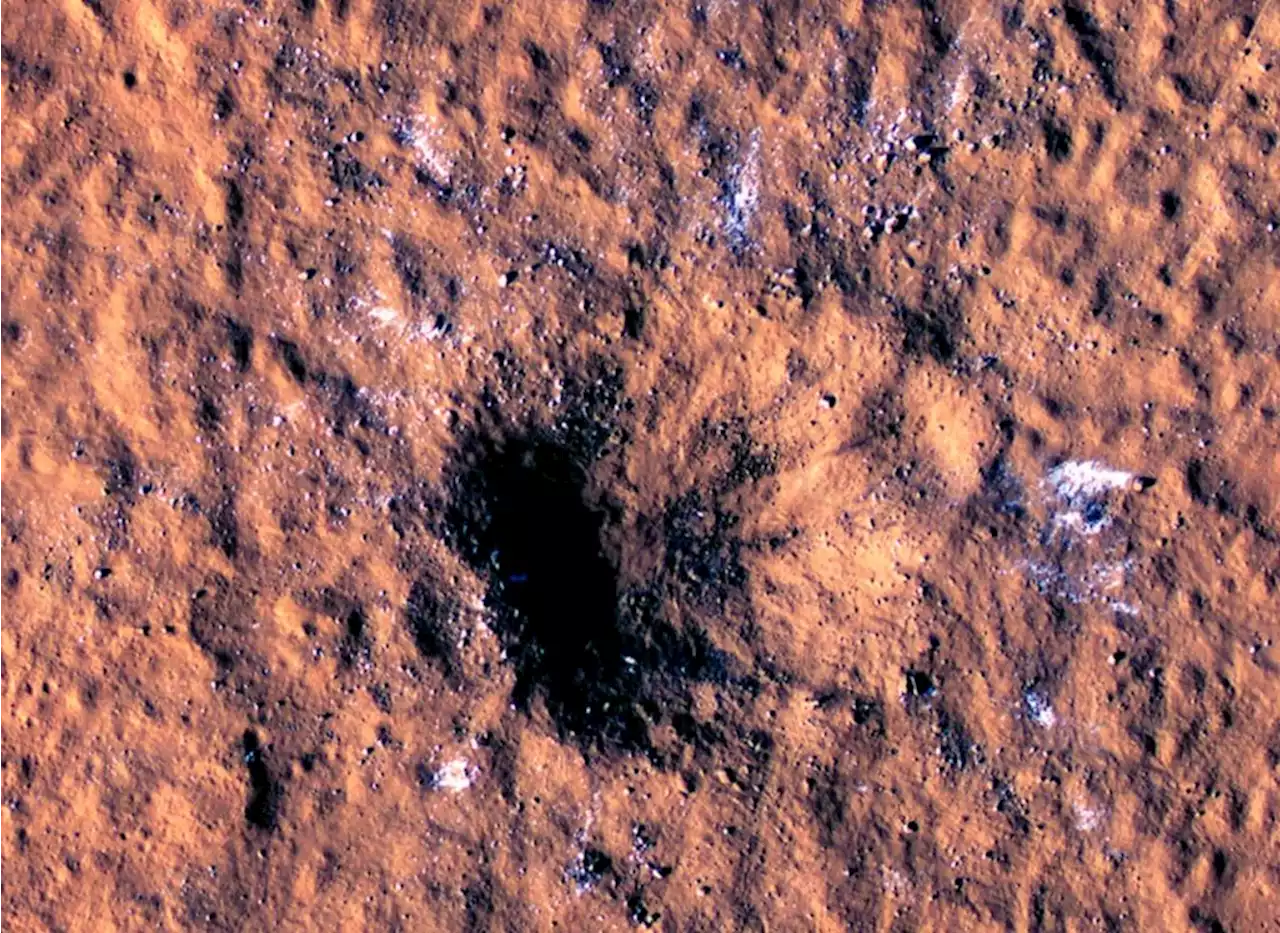The high-speed barrages last year sent seismic waves rippling thousands of miles across Mars, the first ever detected near the surface of another planet, and carved out craters nearly 500 feet (150…
By Marcia Dunn | Associated Press
The larger of the two strikes churned out boulder-size slabs of ice, which may help researchers look for ways future astronauts can tap into Mars’ natural resources. Mars’ atmosphere is thin unlike on Earth, where the thick atmosphere prevents most space rocks from reaching the ground, instead breaking and incinerating them.
“It’s going to be heartbreaking when we finally lose communication with InSight,” said Bruce Banerdt of NASA’s Jet Propulsion Laboratory, the lander’s chief scientist who took part in the studies. “But the data it has sent us will certainly keep us busy for years to come.”The incoming space rocks were between 16 feet and 40 feet in diameter, said Posiolova. The impacts registered about magnitude 4.
Scientists also learned the lander and orbiter teamed up for an earlier meteoroid strike, more than double the distance of the December one and slightly smaller.The seismic readings from the two impacts indicate a denser Martian crust beyond InSight’s location.
United States Latest News, United States Headlines
Similar News:You can also read news stories similar to this one that we have collected from other news sources.
 2022’s Mars Retrograde In Gemini Is A Messy TransitThanks to a retrograde going down on October 30, we’re in for an extended journey.
2022’s Mars Retrograde In Gemini Is A Messy TransitThanks to a retrograde going down on October 30, we’re in for an extended journey.
Read more »
 Ancient Traces of Life May Still Linger on Mars, Experiment SuggestsHere on Earth, life finds a way in some of our most extreme and unlikely environments, so it's possible that microbial life may have once eked a living on our neighboring red planet, too.
Ancient Traces of Life May Still Linger on Mars, Experiment SuggestsHere on Earth, life finds a way in some of our most extreme and unlikely environments, so it's possible that microbial life may have once eked a living on our neighboring red planet, too.
Read more »
 Clearing the Air on a Trip to Mars: the NASA Particle Partition Challenge!With $45,000 in prizes, NASA's Particle Partition Challenge is looking for innovative ideas on how to maintain breathable atmospheres for astronauts far from Earth.
Clearing the Air on a Trip to Mars: the NASA Particle Partition Challenge!With $45,000 in prizes, NASA's Particle Partition Challenge is looking for innovative ideas on how to maintain breathable atmospheres for astronauts far from Earth.
Read more »
 This Mars meteorite contains a toxin that makes pigs vomit (and humans, too)Robert Lea is a science journalist in the U.K. whose articles have been published in Physics World, New Scientist, Astronomy Magazine, All About Space, Newsweek and ZME Science. He also writes about science communication for Elsevier and the European Journal of Physics. Rob holds a bachelor of science degree in physics and astronomy from the U.K.’s Open University. Follow him on Twitter sciencef1rst.
This Mars meteorite contains a toxin that makes pigs vomit (and humans, too)Robert Lea is a science journalist in the U.K. whose articles have been published in Physics World, New Scientist, Astronomy Magazine, All About Space, Newsweek and ZME Science. He also writes about science communication for Elsevier and the European Journal of Physics. Rob holds a bachelor of science degree in physics and astronomy from the U.K.’s Open University. Follow him on Twitter sciencef1rst.
Read more »
 Opportunity Mars rover leader on 'Good Night Oppy' film, giving up SaturnThe Opportunity Mars rover was supposed to last a little more than three Earth months, and ended up surpassing 14 years.
Opportunity Mars rover leader on 'Good Night Oppy' film, giving up SaturnThe Opportunity Mars rover was supposed to last a little more than three Earth months, and ended up surpassing 14 years.
Read more »
 Mars E-Bike Makes Every Chore A Snap, With StyleThe Mars e-bike from Heybike makes canvassing fun with lots of power for steep hills, long battery range, great handling, and zero emissions.
Mars E-Bike Makes Every Chore A Snap, With StyleThe Mars e-bike from Heybike makes canvassing fun with lots of power for steep hills, long battery range, great handling, and zero emissions.
Read more »
